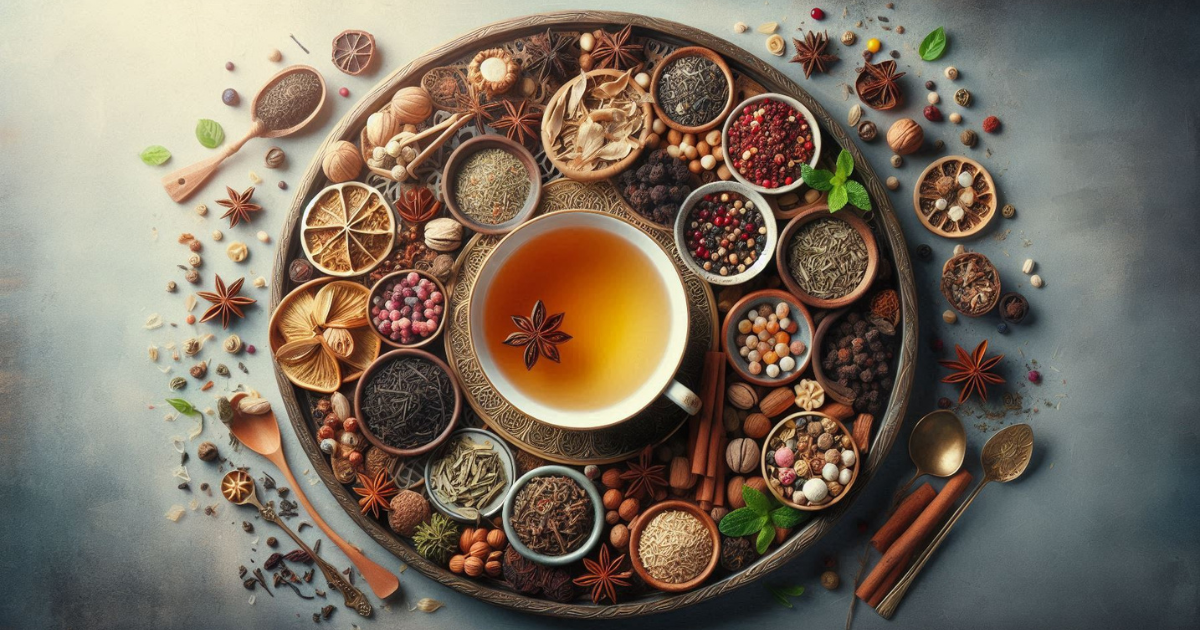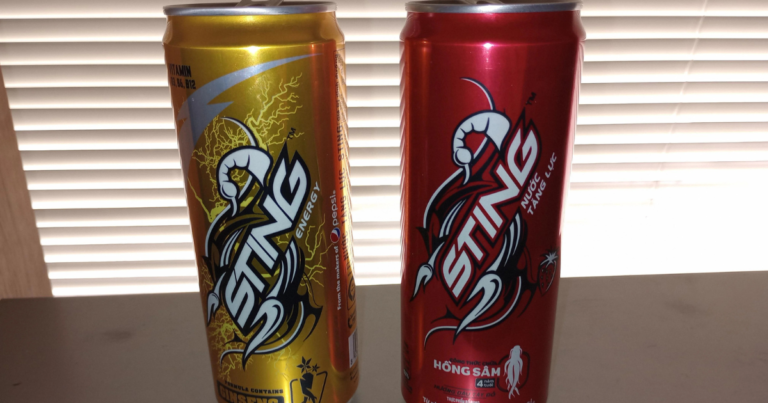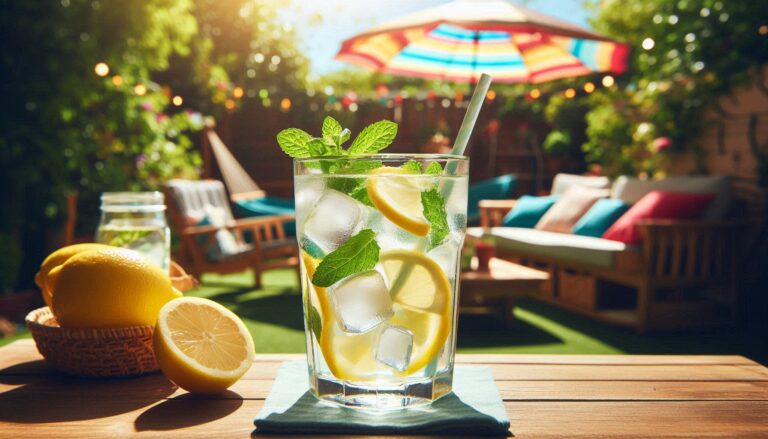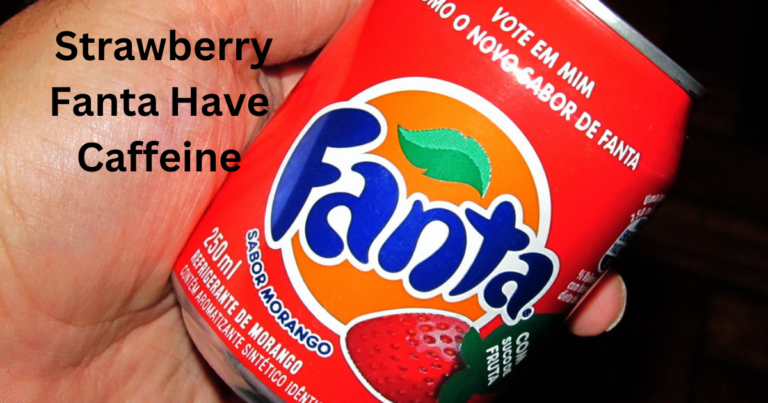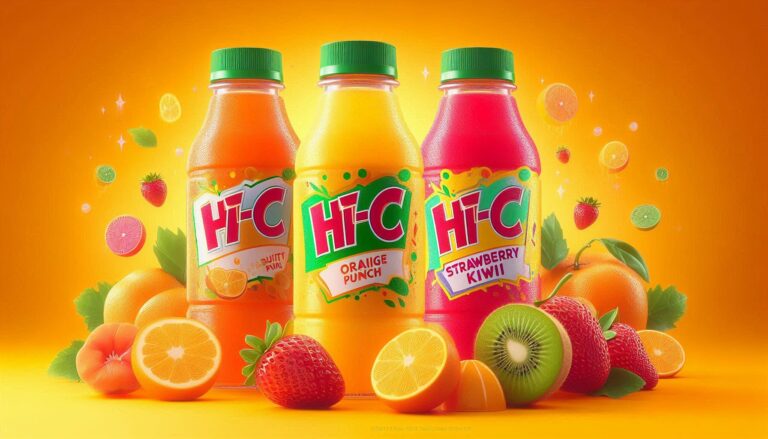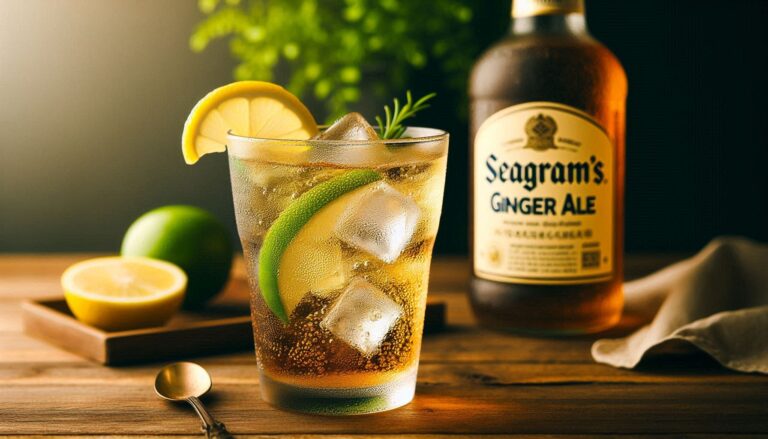Are Herbal Teas Truly Caffeine-Free? Let’s Uncover the Truth
When it comes to enjoying a soothing cup of herbal tea, many people assume they are sipping on completely caffeine-free drinks. However, not all herbal infusions are truly devoid of caffeine, leading to confusion among tea lovers. These tea alternatives, made from herbs, flowers, and spices, are popular for their relaxing and health-boosting properties. But how do you know if your cup is genuinely caffeine-free? It’s time to clear up the myths and provide clarity about what goes into your favorite herbal teas. Let’s dive into the facts to ensure your next brew aligns with your wellness goals.
What Are Herbal Teas?
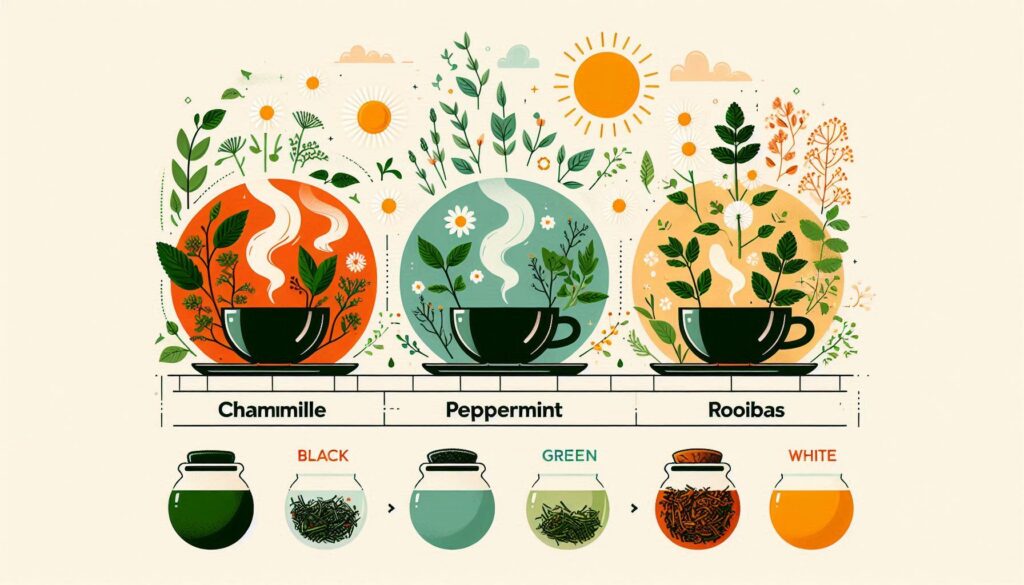
Herbal teas, also known as tisanes, are a delightful category of non-tea beverages that are gaining popularity for their versatility and health benefits. Unlike traditional tea made from the Camellia sinensis plant, herbal infusions are crafted from a variety of dried herbs, flowers, fruits, and spices. This distinction makes them naturally caffeine-free beverages, appealing to those seeking a soothing drink without the stimulating effects of caffeine.
Popular examples of herbal teas include chamomile, known for its calming properties, peppermint, which aids digestion, and rooibos, a South African herb celebrated for its antioxidant content. These tea alternatives are often enjoyed for their unique flavors and potential as herbal remedies for common ailments like insomnia, stress, and digestive discomfort.
What makes herbal infusions particularly attractive is their variety. With no dependence on tea leaves, they cater to a wide range of preferences, offering blends that can be floral, fruity, spicy, or earthy. Moreover, as caffeine-free beverages, they are ideal for evening relaxation or for individuals sensitive to caffeine.
Whether you’re exploring new flavors or seeking the therapeutic benefits of herbal remedies, these tisanes offer a versatile and satisfying experience. Their ability to provide flavorful tea alternatives while promoting wellness has made them a staple in households worldwide.
So, the next time you’re looking for a comforting drink, consider the vibrant world of herbal infusions like chamomile, peppermint, or rooibos. With no caffeine to worry about, they truly stand out as a refreshing and health-conscious choice.
Are Herbal Teas Truly Caffeine-Free?
Herbal teas are generally caffeine-free, but there are a few exceptions. Most herbal teas, such as chamomile, peppermint, and rooibos, are made from plants that do not naturally contain caffeine, making them a popular choice for those looking to avoid stimulants.
However, some herbal blends may include ingredients like green tea, yerba maté, or guayusa, which do contain caffeine. Therefore, while pure herbal teas are typically caffeine-free, it’s important to always check the ingredients list to ensure there are no added caffeinated elements.
The Difference Between Herbal Teas and True Teas
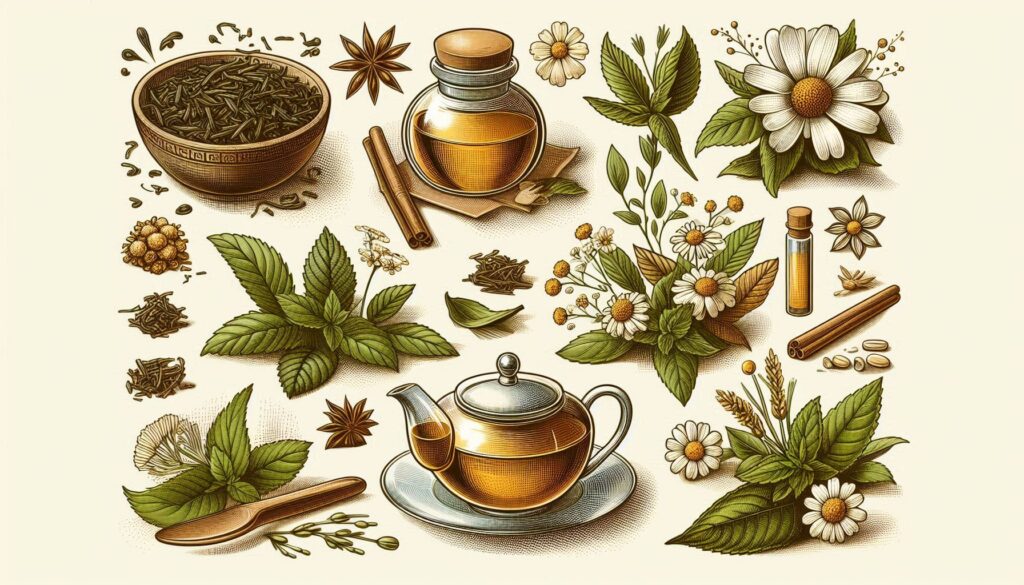
| Aspect | True Teas (Black, Green, White) | Herbal Teas |
|---|---|---|
| Source | True teas come from the Camellia sinensis plant, which is the tea plant used to produce all types of traditional tea. The leaves of this plant are processed differently to create black, green, or white tea. | Herbal teas are not made from tea leaves at all. Instead, they are made from a wide variety of herbs, flowers, fruits, and spices, such as chamomile, peppermint, and rooibos. These ingredients come from different plants, making them plant-based infusions rather than traditional teas. |
| Examples | Examples of true teas include black tea, green tea, and white tea. Each of these teas is made from Camellia sinensis leaves but processed differently to achieve distinct flavors and characteristics. | Common herbal tea examples include chamomile tea, peppermint tea, rooibos tea, hibiscus tea, and lemongrass tea. These do not contain any actual tea leaves from the Camellia sinensis plant. |
| Caffeine Content | True teas naturally contain caffeine, as they are made from the Camellia sinensis plant. The caffeine content varies based on the type of tea: black tea has the highest caffeine content, green tea has a moderate amount, and white tea has the least. | Herbal teas are generally naturally caffeine-free because they are made from non-tea plant ingredients. Since herbal teas don’t use the Camellia sinensis plant, they do not contain the natural caffeine found in traditional tea leaves. This makes herbal teas a popular choice for those seeking caffeine-free alternatives. |
| Processing | The leaves of Camellia sinensis undergo various levels of processing to create different types of true teas. Black tea is fully oxidized, green tea is minimally oxidized, and white tea is the least processed, involving just minimal drying. This processing also affects the caffeine content and flavor. | Herbal teas typically don’t involve much processing. The herbs, flowers, or spices used are often dried or fresh, but they don’t undergo the oxidation and rolling process that true teas do. Each type of herbal tea is unique based on the ingredients used, but none of them involve processing tea leaves from the Camellia sinensis plant. |
| Types of Tea | True teas include black tea, green tea, and white tea, each with different flavors, colors, and caffeine content based on how the leaves are processed. They all originate from the same plant, with the distinction lying in their level of oxidation or minimal processing. | Herbal teas are a broad category that includes any tea-like beverage made from herbs, spices, flowers, or fruits. Unlike true teas, these infusions do not contain tea leaves and are typically used for their unique flavors and medicinal properties. Popular herbal teas include rooibos, peppermint, chamomile, and hibiscus. |
| Decaffeinated vs. Herbal | Decaffeinated teas still come from the Camellia sinensis plant and may have trace amounts of caffeine left after processing. The decaffeination process only removes some of the caffeine, which means they still contain caffeine, just at a lower level. | Herbal teas are completely free from caffeine as they don’t come from the Camellia sinensis plant. Since they are made from other plant parts like flowers, herbs, and spices, they are naturally caffeine-free, providing a safe choice for those avoiding caffeine altogether. |
Do All Herbal Teas Lack Caffeine?
When it comes to choosing herbal teas, one of the main reasons people are drawn to them is the belief that they are naturally caffeine-free. Herbal teas, unlike true teas made from Camellia sinensis, are made from a wide variety of plants, flowers, and herbs, and are often marketed as caffeine-free options. However, not all herbal teas are free from caffeine.
While most herbal teas such as chamomile, peppermint, and rooibos are indeed caffeine-free, there are exceptions. Some herbal teas naturally contain caffeine, making them unsuitable for those looking for a caffeine-free beverage. Yerba mate, guayusa, and even cacao tea are examples of naturally caffeinated herbs that can be found in some herbal tea blends. These teas are packed with natural stimulants and can provide an energy boost similar to traditional caffeinated teas.
Additionally, some herbal teas may be mislabeled, leading consumers to believe they are free of caffeine when they actually contain trace amounts. Hidden caffeine sources can sometimes sneak into blends through cross-contamination with other teas or by including ingredients that naturally contain caffeine. It’s important to check the caffeine content in teas and read labels carefully to ensure you’re choosing the right tea for your needs.
If you’re looking for truly caffeine-free herbal options, it’s essential to stick with well-known blends like chamomile and hibiscus or seek out products that are explicitly labeled as certified caffeine-free. Always double-check the ingredient list to avoid surprises and enjoy the full benefits of your herbal tea without worrying about hidden caffeine content.
Common Caffeine-Free Herbal Teas
When it comes to caffeine-free beverages, herbal teas are an excellent choice for those looking to unwind without the stimulant effects of caffeine. Several popular herbal teas are genuinely caffeine-free, making them perfect alternatives to traditional caffeinated drinks. Some of the most well-loved options include chamomile tea, peppermint tea, rooibos tea, hibiscus tea, lemon balm tea, and valerian root tea. Each of these teas offers unique health benefits while promoting relaxation and well-being.
Chamomile tea is renowned for its calming effects, making it a top choice for anyone looking to improve their sleep or reduce stress. Its soothing properties are ideal for those seeking a peaceful end to their day. Similarly, peppermint tea is not only caffeine-free but also supports digestion and relieves headaches, offering a refreshing way to relax after meals.
Rooibos tea from South Africa is packed with antioxidants and is a great choice for heart health and overall wellness. It’s naturally sweet and free from caffeine, making it a versatile option for all ages. Hibiscus tea offers a tangy flavor and is known for its ability to lower blood pressure and boost the immune system. It’s an excellent option for anyone looking to stay healthy while avoiding caffeine.
Lemon balm tea is another relaxing herbal tea that calms the nervous system, helping reduce anxiety and improve sleep quality. Lastly, valerian root tea is commonly used as a natural remedy for insomnia and anxiety, providing a restful night’s sleep without the need for caffeine.
These caffeine-free herbal teas are more than just enjoyable drinks—they offer significant health benefits and are a perfect substitute for caffeinated beverages. Whether you’re seeking relaxation, digestive support, or better sleep, these herbal teas have something to offer everyone.
Surprising Herbal Teas That May Contain Caffeine
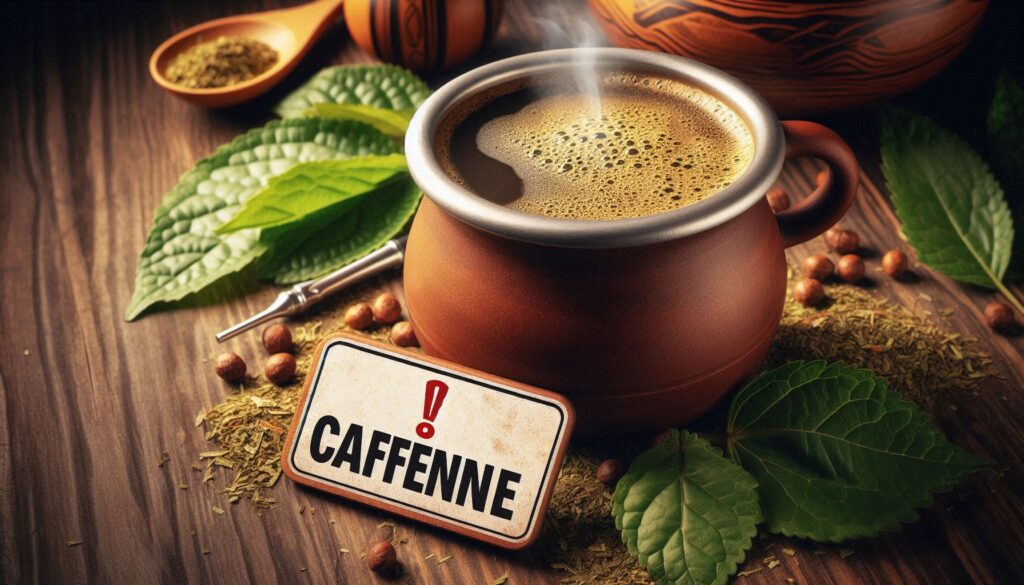
While many herbal teas are naturally caffeine-free, there are some surprising exceptions. Certain herbal teas with stimulants contain caffeine, making them unique among their peers. Let’s explore three such teas that might catch you off guard.
Yerba Mate Caffeine
One of the most well-known unexpected caffeine sources is yerba mate. Native to South America, this herbal infusion is celebrated for its powerful energy-boosting properties. Unlike traditional herbal teas, yerba mate caffeine gives you a natural energy lift similar to coffee but with a smoother, more balanced effect. It’s a favorite for those seeking a gentle pick-me-up without the jitters.
Guayusa Energy Tea
Another energy-boosting infusion is guayusa, a tea derived from the leaves of a tree native to the Amazon. Like yerba mate, guayusa energy tea is packed with caffeine, making it a perfect alternative for anyone seeking an invigorating herbal tea experience. Known for its clean, vibrant taste, it’s a popular choice for those who want the benefits of an herbal tea with the energy kick of traditional caffeinated beverages.
Cacao Tea Caffeine
You might be surprised to learn that cacao tea also contains caffeine. Made from the husks of cacao beans, this traditional caffeine-containing herb delivers a mild boost of energy with the rich, chocolatey flavor of cocoa. It’s a great choice for those looking to enjoy the essence of chocolate while reaping the benefits of a natural stimulant.
While these herbal teas with stimulants are exceptions, they are excellent choices for anyone who enjoys the calming rituals of herbal tea but still craves that extra burst of energy. Just be aware of the caffeine content if you’re sensitive to stimulants.
How to Check if Your Herbal Tea is Truly Caffeine-Free
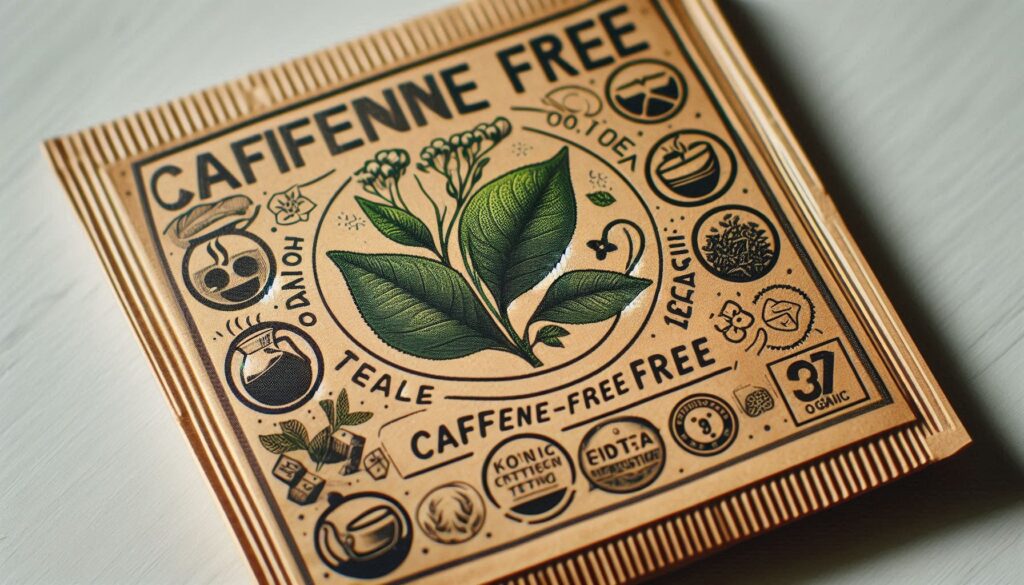
When choosing herbal teas, it’s essential to ensure they are truly caffeine-free, especially if you’re sensitive to caffeine or looking to relax. Here’s how to make sure you’re picking the right tea.
Reading Tea Labels
Start by reading tea labels carefully. Reputable brands often display whether their herbal teas are certified caffeine-free. This label guarantees that the tea has undergone testing to confirm it contains no caffeine. If a product doesn’t specifically mention being caffeine-free, it may contain trace amounts, so it’s worth investigating further.
Scrutinizing the Ingredients List
The next step is to look at the ingredients list. Ingredients list scrutiny helps you identify any hidden sources of caffeine. Some herbal blends, such as yerba mate or guayusa, naturally contain caffeine. If you see any unfamiliar herbs, do a quick check to ensure they’re caffeine-free. Often, teas with a mix of herbs or “energy” blends can include unexpected caffeine sources.
Organic and Pure Blends
To ensure you’re avoiding contaminants or added caffeine, choose organic and pure blends. Organic teas are less likely to be contaminated with synthetic pesticides or artificial additives. These teas are made with only the plant ingredients, minimizing the chance of cross-contamination with caffeinated teas. You’ll find that pure blends, like chamomile or rooibos, are typically caffeine-free.
Avoiding Cross-Contamination
Another tip is to be cautious about herbal tea packaging and where it’s made. Cross-contamination can occur if your tea is processed in the same facility as caffeinated teas. Look for brands that guarantee their teas are produced in caffeine-free environments. By following these steps, you can confidently choose caffeine-free herbal teas that fit your needs.
Benefits of Choosing Caffeine-Free Herbal Teas
Caffeine-free herbal teas offer numerous health benefits that make them a great choice for anyone looking to improve their overall well-being. These sleep-friendly teas are particularly popular for their ability to promote relaxation and improve sleep quality. Teas like chamomile and valerian root have natural properties that help calm the mind, making them perfect for winding down after a long day. For those struggling with sleep, a warm cup of herbal tea can work wonders in preparing the body for rest.
Moreover, herbal relaxation blends such as lavender and lemon balm are known for their anxiety relief properties. These teas help reduce stress and ease tension, making them an ideal choice for individuals dealing with daily worries. Whether you’re looking to relax after work or need a calming ritual before bed, these blends can help you find inner peace.
Caffeine-free herbal teas also support digestive health benefits. Teas like peppermint and ginger are excellent for soothing the digestive system, alleviating bloating, and reducing discomfort. They help in maintaining a healthy gut, making them a go-to remedy after meals or for soothing an upset stomach.
In addition, many herbal teas serve as natural detox teas, helping your body flush out toxins and cleanse naturally. Ingredients such as dandelion root and rooibos are known to support liver function and detoxification, promoting overall wellness.
Lastly, heart-healthy beverages like hibiscus tea have been shown to reduce blood pressure, contributing to better cardiovascular health. These non-stimulant teas are free of caffeine, making them a perfect choice for anyone looking to maintain a healthy heart without the added stimulation of caffeinated drinks.
Who Should Avoid Caffeinated Herbal Teas?
When it comes to herbal teas, choosing safe tea choices is crucial, especially for certain groups of people who may need to avoid caffeinated herbal teas. While most herbal teas are naturally caffeine-free, some blends may contain natural stimulants, making them unsuitable for specific individuals.
Pregnant Women and Tea
Pregnant women and tea consumption requires extra caution. Even small amounts of caffeine can affect pregnancy, leading to complications like miscarriage or low birth weight. Herbal teas like yerba mate or guayusa, known for their caffeine content, should be avoided during pregnancy. Always opt for caffeine-free herbal options such as chamomile or peppermint to ensure safety.
Children’s Tea Consumption
When it comes to children’s tea consumption, it’s important to avoid giving them herbal teas with caffeine. Caffeine can overstimulate children, causing irritability, restlessness, or sleep disturbances. For younger ones, stick to herbal teas without caffeine, such as rooibos or hibiscus, which are gentler and safer.
Caffeine Sensitivity
People with caffeine sensitivity should also avoid caffeinated herbal teas. Even a small amount of caffeine can cause symptoms like jitteriness, increased heart rate, or digestive discomfort. For those with heightened sensitivity, opting for herbal remedies without any form of caffeine ensures a more comfortable and relaxing experience.
Anxiety and Caffeine
If you are prone to anxiety and caffeine, it’s best to steer clear of caffeinated herbal teas. Stimulants can exacerbate anxiety, leading to restlessness or heightened stress. For health-conscious tea drinkers, selecting herbal teas like chamomile or lemon balm can help reduce stress without triggering anxiety symptoms.
Insomnia and Herbal Teas
Finally, individuals struggling with insomnia and herbal teas should be cautious with teas containing caffeine. Caffeine can interfere with sleep patterns, making it difficult to fall asleep or stay asleep. Opting for caffeine-free teas like valerian root or lavender can promote better rest.
For these groups, always prioritize safe tea choices to ensure your health isn’t compromised by hidden caffeine sources.
Tips for Brewing Herbal Teas Without Contamination
Brewing herbal teas properly ensures that you enjoy their full benefits without the risk of contamination from other beverages, especially caffeinated ones. Here are some practical tips for brewing your herbal teas while avoiding cross-contamination and preserving their purity:
Use Clean Tea Strainers and Infusers
A key to ensuring that your herbal teas remain free from caffeine contamination is to always use clean tea strainers and infusers. If you’ve used your infuser or strainer for caffeinated beverages, leftover particles can transfer to your herbal tea, compromising its quality. To avoid this, make sure to thoroughly clean your strainers before using them for herbal teas.
Avoid Mixed Tea Blends
When making herbal teas, be cautious about avoiding mixed tea blends. If you’ve brewed caffeinated tea in the same container, traces of caffeine can linger and affect your herbal tea. Consider having a dedicated teapot for your herbal teas to keep the flavors pure and prevent any inadvertent caffeine contamination.
Brew at the Right Temperature
The herbal tea brewing temperature is crucial. Some herbal teas, like chamomile or rooibos, require hot water, but not boiling, to release their best flavors. Boiling water can cause the delicate herbs to lose their essence or even impart an undesirable bitterness. By brewing your herbal teas at the right temperature, you’re ensuring the best flavor profile and the absence of unwanted flavors from previous brews.
Clean Tea Preparation
The importance of clean tea preparation cannot be overstated. Even the smallest traces of caffeinated tea left on your teapot or spoon can affect the purity of your herbal tea. Always wash all your tea-making tools thoroughly before preparing herbal teas to avoid contamination.
By following these simple pure herbal tea tips, you’ll be able to enjoy a truly caffeine-free and flavorful experience each time you brew.
Final Thoughts: Are Herbal Teas a Safe Caffeine-Free Option?
When considering herbal tea safety, it’s important to remember that most herbal teas are indeed reliable caffeine-free drinks. Choosing authentic herbal teas ensures you enjoy the many herbal tea benefits, such as improved sleep and digestion. However, it’s crucial to be aware of any misconceptions about herbal tea, as some blends may contain hidden caffeine sources. To maintain a caffeine-free lifestyle, always read the label carefully and choose certified products. By practicing safe tea habits, you can enjoy a cup of herbal tea with peace of mind, knowing it’s both safe and healthy.
Frequently Asked Questions about Herbal Teas
1. What makes herbal tea different from traditional tea?
Herbal tea is made from herbs, fruits, flowers, and spices, whereas traditional tea is derived from the Camellia sinensis plant. Herbal teas do not contain tea leaves, which makes them naturally caffeine-free.
2. Can herbal teas be consumed in the morning?
Yes, herbal teas can be consumed in the morning. Herbal teas like peppermint or ginger may help refresh and energize you without the caffeine jitters associated with traditional tea or coffee.
3. Are herbal teas safe for children?
Most herbal teas are safe for children, but certain herbs, such as chamomile or peppermint, should be used in moderation. Always consult a pediatrician before introducing any herbal tea to children.
4. Do herbal teas have any medicinal properties?
Yes, many herbal teas are known for their medicinal properties. For example, chamomile is often used to calm nerves, while ginger tea can aid digestion. However, these effects can vary based on the herb and the individual.
5. Can herbal teas help with stress and anxiety?
Yes, certain herbal teas like chamomile, lavender, and lemon balm are well-known for their calming effects. These teas can help reduce stress and anxiety by promoting relaxation and sleep.
6. Do herbal teas provide hydration?
Yes, herbal teas are an excellent way to stay hydrated. Since they are typically made from natural ingredients, they contribute to your daily fluid intake without any caffeine.
7. Are herbal teas suitable for a weight loss diet?
Some herbal teas, such as green tea, dandelion, or hibiscus, are thought to support weight loss by boosting metabolism and improving digestion. However, they should be combined with a healthy diet and regular exercise.
8. What should I look for when buying herbal teas?
When buying herbal teas, look for high-quality ingredients and check labels for any added sugars or artificial flavors. Certified organic or non-GMO teas are often a safer choice for a more natural experience.
9. Can herbal tea be consumed cold?
Yes, herbal tea can be consumed both hot and cold. Iced herbal teas are refreshing and perfect for hot weather. You can brew herbal tea and chill it for a flavorful cold beverage.
10. Is herbal tea good for digestion?
Yes, many herbal teas such as peppermint, ginger, and fennel are known to aid in digestion by soothing the stomach and promoting healthy digestion. These teas can help relieve bloating and indigestion.
